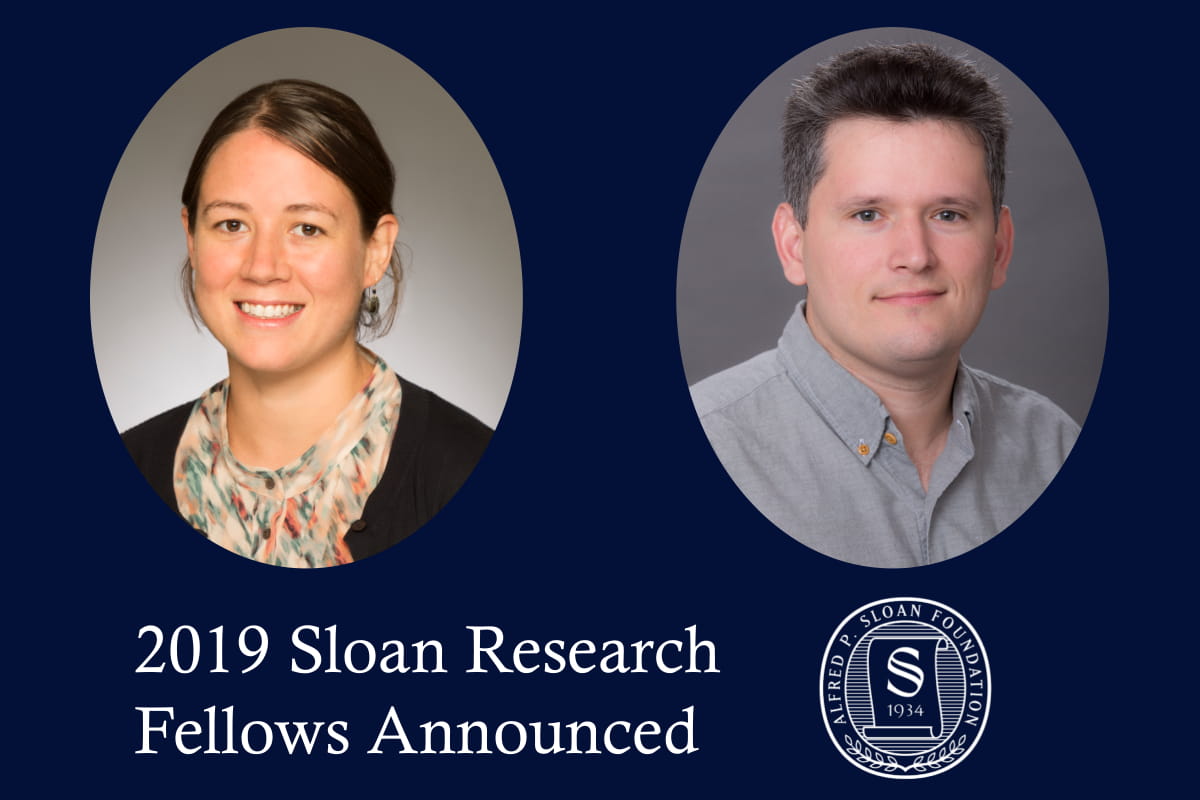Jessica Anna and Davi Maximo of the School of Arts and Sciences are among the 126 recipients of this year’s Sloan Research Fellowships, which recognize early-career researchers and scholars in North America. Each will receive a two-year, $70,000 Fellowship for research.
Anna is an assistant professor in the Department of Chemistry, and an Elliman Faculty Fellow who studies natural and artificial light harvesting complexes and biologically inspired model systems. Her group looks at how energy and electron transfer occurs in natural light harvesting complexes in order to better understand how these systems can produce energy from light so efficiently. Her physical chemistry group applies well-established and novel multidimensional spectroscopy techniques to capture a detailed and dynamic glimpse into the energy and electron transfer processes of light-harvesting complexes and engineered model systems. This research provides insights on how to design new systems relevant to solar energy conversion, such as artificial photosynthetic systems, and materials that can convert light energy into electricity.
Maximo is an assistant professor in the Department of Mathematics, where he studies variational problems from geometry. His research focuses on minimal surfaces, which are surfaces that minimize area on a local level—for example, a soap film that stretches across a loop of wire. Minimal surfaces are an important model for describing many natural phenomena and have been used in bioengineering and materials science, and in understanding black hole topology within the theory of general relativity. Maximo’s work aims to understand how these surfaces minimize area on a local level and how they can be used to understand the geometry of complex shapes more broadly.
Since first awarded in 1955, 117 faculty from the University of Pennsylvania have received Sloan Research Fellowships. Drawn this year from 57 colleges and universities in the United States and Canada, the 2019 Sloan Research Fellows represent an array of research interests.
Open to scholars in chemistry, computer science, economics, mathematics, computational, and evolutionary molecular biology, neuroscience, ocean sciences, and physics, the Fellowships are awarded in close coordination with the scientific community.
Candidates must be nominated by their fellow scientists and winning Fellows are selected by independent panels of senior scholars on the basis of research accomplishments, creativity, and potential to become a leader in his or her field.








